The Best RV Batteries for Boondocking 2023
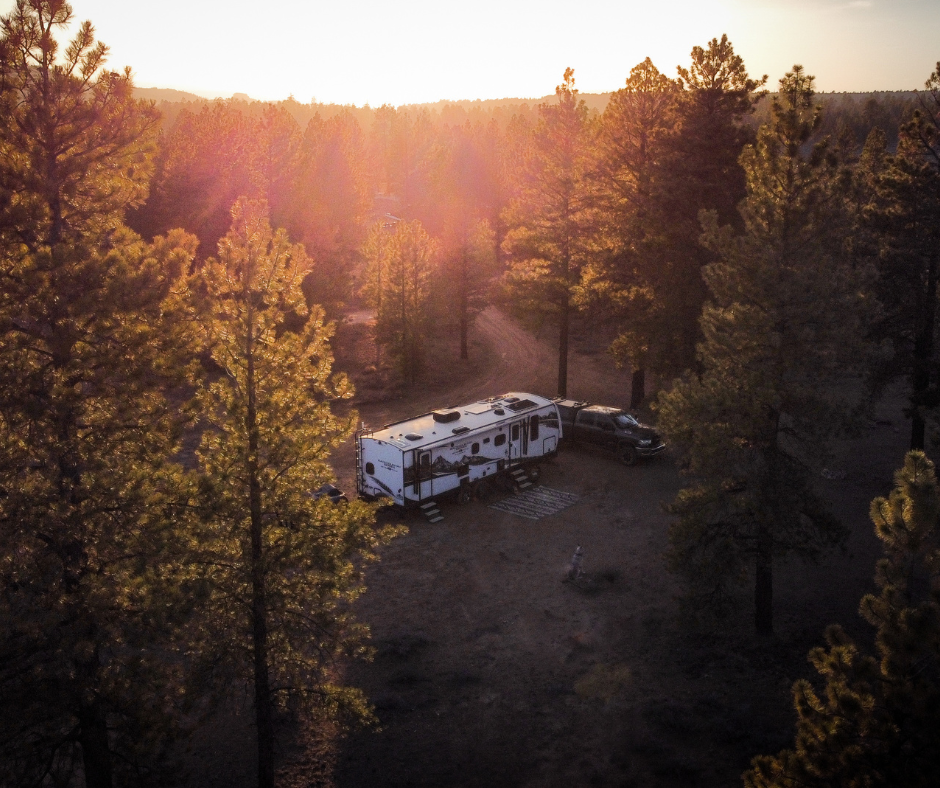
We all know that boondocking is the best way to camp.
It allows you to go off the beaten path and enjoy nature without any distractions.
However, this means you will be camping without access to electricity and you will be depending on your RV battery to keep your RV powered up.
With so many options available, it may seem difficult to choose the best one for your needs.
To help you decide which is best for boondocking with no hookups, this blog post will discuss the different types of batteries available as well as recommendations on brands to use based on your needs.
Read on as we help you choose an RV battery for boondocking!
Table of Contents
ToggleQuick Buyers Guide for Best RV Batteries
- LONGEST LASTING DEEP CYCLE BATTERY: Renogy Hybrid Gel 12V 200Ah Battery
- BEST LITHIUM ION BATTERY: Battle Born Lithium Deep Cycle Battery
- BEST AGM BATTERY: Renogy Deep Cycle AGM Battery
- BEST BUDGET RV BATTERY: Weize 12 Volt 100Ah Deep Cycle Battery
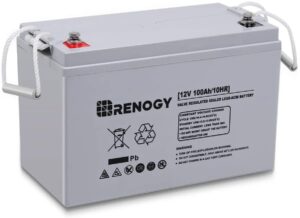
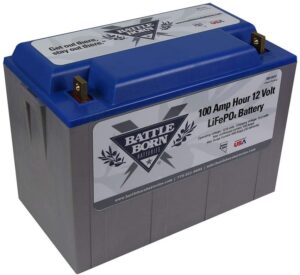
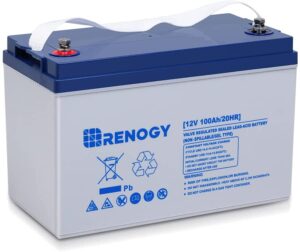
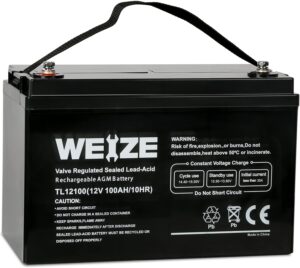
What is Boondocking and Why you Need an RV Battery for it
Boondocking is a term used to describe camping in the backcountry, away from any hookups. When boondocking, every ounce of power counts. In the case of an RV, batteries are necessary to power the RV electronics and appliances.
A battery that can’t hold its charge will leave you with no power. For this reason, it’s important to find the best RV battery for boondocking on your next trip.
How An RVs Electrical System Works
The electrical systems of an RV are more complex than those found in homes because they have two kinds: 120V AC and 12V DC.
AC power is what what your home runs off of and allows your RV to provide power to outlets and appliances. When your RV is hooked up to shore power at your home or RV park, your RV will be using AC power.
DC power comes from your batteries and is used when you are boondocking. Which means camping without any hookups to a power source. The 12V DC electricity from your batteries will be powering all of your appliances and gadgets.
However, in order to use your RV batteries while boondocking, most RV will need an Inverter. Inverters convert direct current (DC) electricity into alternating current (AC).
How To Pick The Best RV Battery
If you are an avid RV traveler, you know that batteries can be expensive. When choosing a battery for your RV, you need to consider how you will be using it. If you plan to mainly use your RV for short weekend trips, a lead acid battery will probably work just fine. However, if you want to take your RV on extended trips or live in it full time, you’ll need a battery that can last longer and handle more abuse. That’s where lithium ion and deep cycle batteries come in.
Choosing a battery for your needs:
- Select a battery with the same voltage rating as your RV’s battery bank.
- Choose a battery with an amp-hour rating that is at least 25% higher than the current draw of all devices to be connected to the battery bank.
- Make sure you have enough batteries in your RV’s battery bank to handle heavy electrical loads.
Understand the Basics of RV batteries
Batteries are the life of an RV. They convert chemical energy into electrical energy and store it for use at a later time so that you can still have power for appliances and electronics while boondocking.
RV battery technology is constantly evolving and there are many types of batteries to choose from. Understanding the differences can be confusing when you’re trying to make an investment in your RV.
Deep Cycle Batteries for Boondocking
Deep cycle batteries are designed to provide a steady amount of power over an extended period of time. While other types batteries can be used for boondocking, deep cycle batteries are the ideal option because they handle long periods without being charged, and are designed to be charged and recharged without causing damage to the battery.
Different Kinds of Battery Technologies
The most common type of battery used in vehicles and RVs are 12 Volt Lead-acid batteries and are available in three types: flooded lead acid (FLA), absorbed gas mat (AGM) and gel cell. All 12 Volt RV Batteries can be used for deep cycle applications. However, Lithium-ion batteries have been making their way into RVs as an aftermarket upgrade since they offer high power density and longer life spans.
Lead Acid Battery
Lead-acid batteries are a type of rechargeable battery that has been around for quite some time. They’re used in many different types of vehicles, including RVs, golf carts, and motorcycles to help provide power when needed.
How they work: Lead-acid technology works by converting chemicals to electricity. This type of battery generates electricity through a double sulfate chemical reaction, which happens when lead and lead dioxide react with sulfuric acid to form lead sulfate. Lead goes into one plate while sulfuric acid is on its opposing side, causing them both to gain electrons until you have an electric charge.
Lead-acid batteries typically come in two types, starting and deep cycle.
Starting lead-acid batteries: are specifically designed to provide a high-current burst of electricity that’s used for starting engines. They’re typically discharged by less than 5%, and then immediately recharged again.
Deep cycle batteries: are durable and can be recharged many times before they need to be replaced. They can store more power than standard lead-acid ones. These high-capacity, deep-discharging batteries were designed to only be used to 50% of their capacity before needing to be recharged.
Lead-acid batteries are dependable and affordable, making them a popular choice for recreational vehicles.
Flooded Lead-Acid (FLA) Wet-Cell Battery
Flooded Lead Acid Batteries are the most commonly used RV Batteries because they’re relatively cheap, easy to maintain and can be stored for long periods without losing their charge. But they require regular maintenance.
How they Work: Flooded Lead-acid batteries are a type of rechargeable battery that consists of free-flowing liquid lead and lead oxide submerged in a conductive solution.
Gel Cell RV battery
Gel Cell Batteries are another type of battery that falls into the deep cycle category. Gel Cell batteries are filled with a thick gel that immobilizes the acid, making them spill-proof. Gel battery can operate in high temperatures but provides the best performance at slow, deep discharge rates.
How they work: Gel Cell Batteries use a thickening agent (silica gel) that turns the electrolyte into a jelly-like substance. Gelified electrodes do not move when you shake or tip them over, therefore making it safer than other types of RV batteries.
AGM Batteries (Absorbed Glass Matt)
The best type of Deep Cycle Battery, however, is AGM (absorbent glass mat) because it uses fiberglass mats soaked with acid electrolyte solution that allows gas from venting off while still providing protection from spills with deep cycle capability. AGM batteries have a life span of around five years and can easily hold up with the demands put on an RV battery when running appliances or hooking up for extended periods without being plugged into shore power. AGM batteries are the best choice for people who need a battery that can handle vibration, and higher charge and discharge rates.
How they work: The technology that makes up the AGM battery is very different from other types of batteries. In these kinds, there’s a separation between positive and negative plates by an absorbent material (glass mat) which prevents acid from flowing freely inside it. Making these rechargeable batteries last longer than traditional ones. The lifespan of an AGM battery is up to six years.
Lithium-Ion RV Batteries
Lithium-Ion RV Battery is also referred to as a Lithium Iron Phosphate (LiFePO) is the newest and most expensive technology on the market. Lithium Ion batteries last four times longer than regular lead acid batteries and are much lighter in weight. They also have a very low self-discharge rate, meaning they can sit for months without losing a lot of their charge.
How they work: How lithium Ion batteries work is by using lithium ions to shuttle back and forth between the anode and cathode producing a flow of electricity.
Lithium-ion batteries are one of the most popular types of RV Batteries for Boondocking on the market today. They have a high energy density, meaning they hold up to twice as much energy as lead acid batteries . This makes them a good choice for RVs that will be used extensively.
BEST BUDGET RV BATTERY:
Featuring a calcium-alloy grid for exceptional performance and service life, this battery can be used for off grid applications without leaking or maintenance. This battery has an Absorbent Glass Mat (AGM) technology with a valve regulated design, that can be used in enclosed and indoor environments. This is the best Budget Battery you can buy.
- Volts: 12 Volts
- Battery Cell: Sealed Lead Acid
- Weight: 57 lbs
- Capacity: 100Ah
BEST AGM BATTERIES
Renogy’s Deep Cycle AGM battery is the perfect choice for powering your RV. Made with absorbed glass mat technology, this battery is designed for long-term use and can withstand repeated cycling. This battery is also capable of withstanding high impact and vibration. Plus, it’s spill-proof and maintenance-free, making it a great option for those who want a hassle-free experience.
- Volts: 12 Volts
- Battery Cell: Lead Acid, AGM
- Weight: 66 lbs
- Capacity: 100 Ah
BEST LITHIUM ION BATTERY
Recognized as the best lithium ion RV battery on the market, Battle born is a powerful deep cycle battery designed for boondocking and provides superior power performance, longer life, and safety. Making it perfect for off-grid use. This lithium battery is designed using green practices and weighs just 31 lbs, one-third the weight of a traditional lead-acid battery. Their high price tag is well worth it when you consider how long they last. So if you’re looking for a reliable battery that can handle extended periods of use, make sure to check out Battle Born.
- Volts: 12 Volts
- Battery Cell: Lithium Ion
- Weight: 29 lbs
- Capacity: 100 Ah
LONGEST LASTING DEEP CYCLE BATTERY FOR RV
If you’re looking for a battery that can handle extended periods of deep discharge, the Renogy Pure Gel 12V 200Ah Battery is perfect for you. It’s made with high-quality materials and construction, so you can trust it to provide reliable power with no maintenance and no toxic gas. Plus, its patented hybrid gel-cell design offers extra protection against shocks and vibrations. This battery has a life of 12 years in standby applications and 750 charge/discharge cycles. It offers a high capacity and excellent performance in high and low temperatures.
- Volts: 12 Volts
- Battery Cell: Hybrid Gel
- Weight: 129 lbs
- Capacity: 200Ah
RV Battery Maintenance Tips
Battery maintenance is a vital task that should be taken seriously. There are ways we can prolong the lifespan of your RV battery through proper care. Here are a few tips to consider when maintaining your RV batteries for boondocking.
Tips on How to Extend the Life of your Battery
- Wipe off any corrosion, dirt, or grime that accumulates on the terminals with a dry cloth to ensure good electrical contact.
- Make sure your battery does not discharge below its recommended level.
- Don’t overcharge your RV battery. This can damage the cells and shorten the life span.
- Using a Battery Monitoring System (BMS) can tell you if your battery needs to be charged. It checks the levels, voltage and current on your lead-acid batteries.
- To extend the life of your batteries, store them in a cool dry place with good ventilation. Humidity should be avoided at all costs.
How long do RV Batteries Last While Boondocking?
The amount of time a battery will last while boondocking depends on the type of battery and how it is being used. Under normal conditions, being used to power lights, pumps, and other electrical systems, RV batteries can last for several days without needing to be charged.
However, boondocking is not always ideal or comfortable conditions. If the weather is frequently below freezing or over 100 degrees Fahrenheit, or if you use your appliances more than usual, then you might need to recharge your battery every day instead of every few days.
The Importance of Having a Backup Power Source
When boondocking or camping out in nature without access to electricity, having a backup power source such as solar panels or a generator is essential. This is especially true if you plan on using appliances that require a lot of power.
However, even if you are not using your RV for extended periods of time, it’s still a good idea to have some sort of backup power source in case of an emergency.
While solar panels are a great option for backup power, they can be expensive and may not be feasible for everyone. If this is the case, then a generator might be a better option.
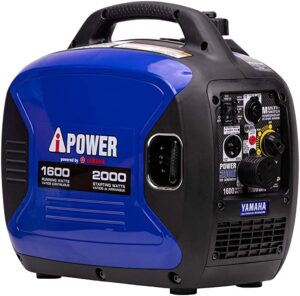
Best RV Battery for Boondocking Final Thoughts
So there you have it, everything you need to know about buying an RV battery and selecting the best RV battery for your needs. I hope this guide was helpful! Do you have a favorite RV battery for boondocking that was not on this list? Let us know!
Our blog is full of tips and tricks to make RV ownership easier. From finding the best boondocking locations throughout the US to choosing a cell booster for your RV. Be sure to check our RV Boondocking Resources for more helpful guides related to RV living.
Additional RV living posts you might find helpful:

Related Posts
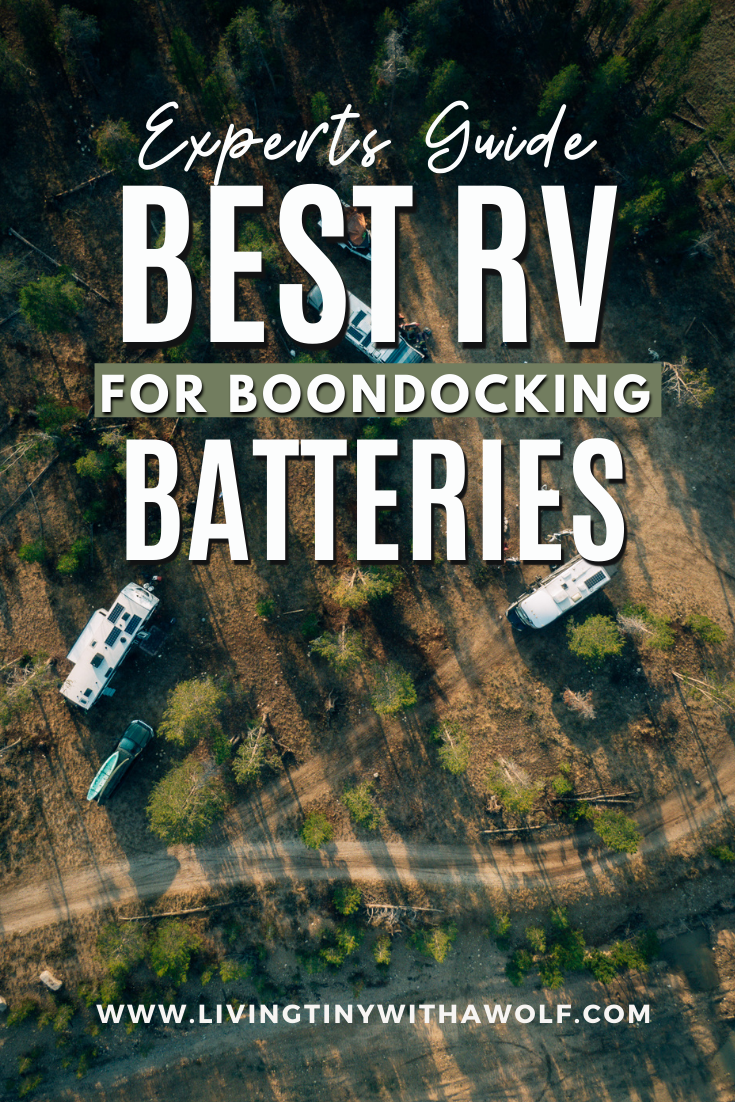



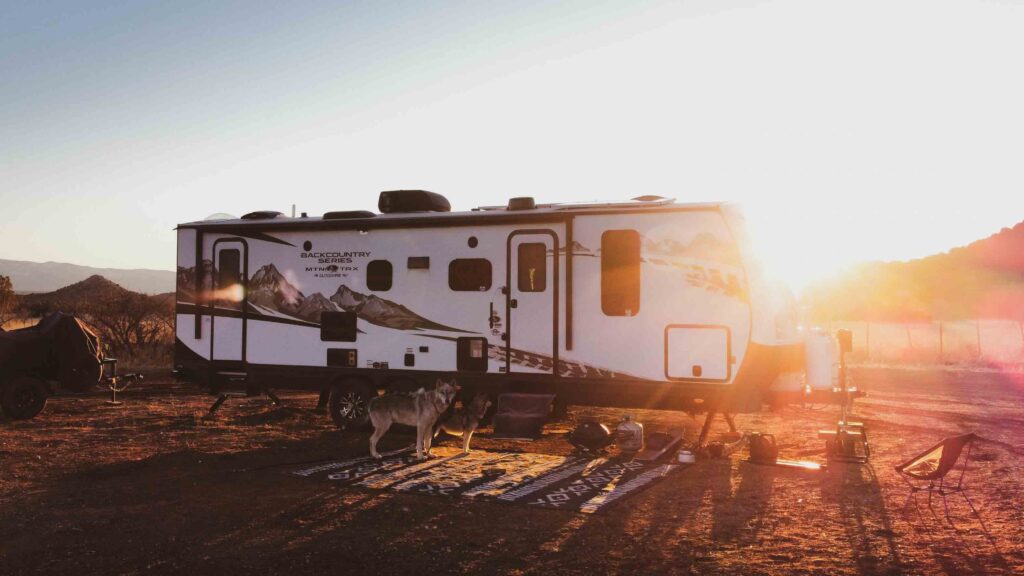
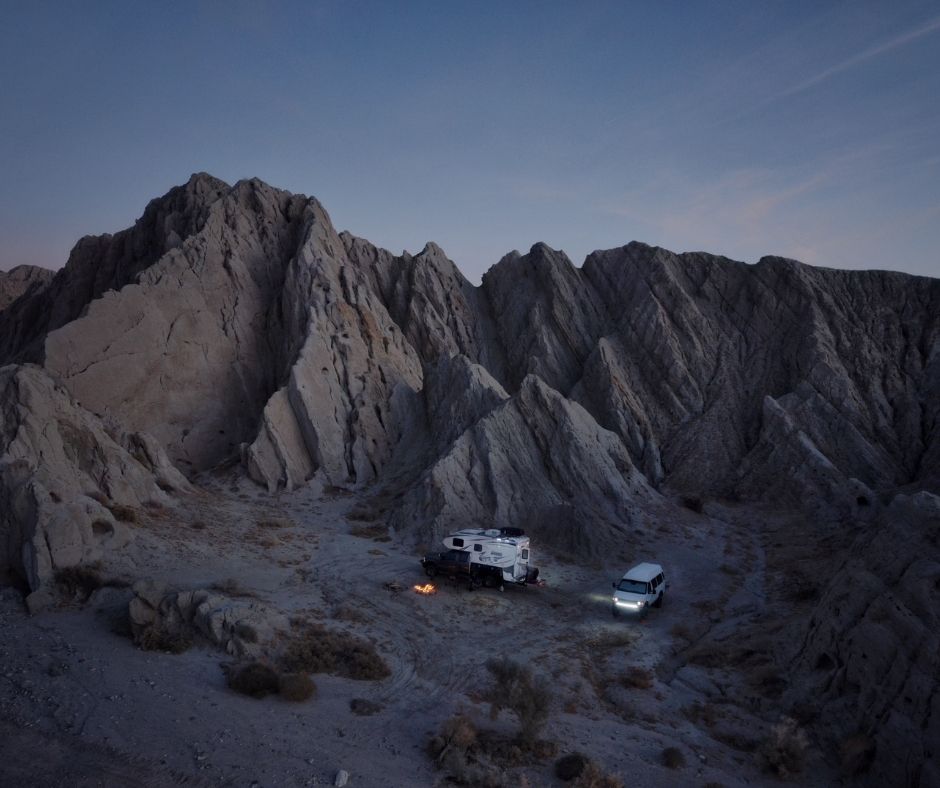
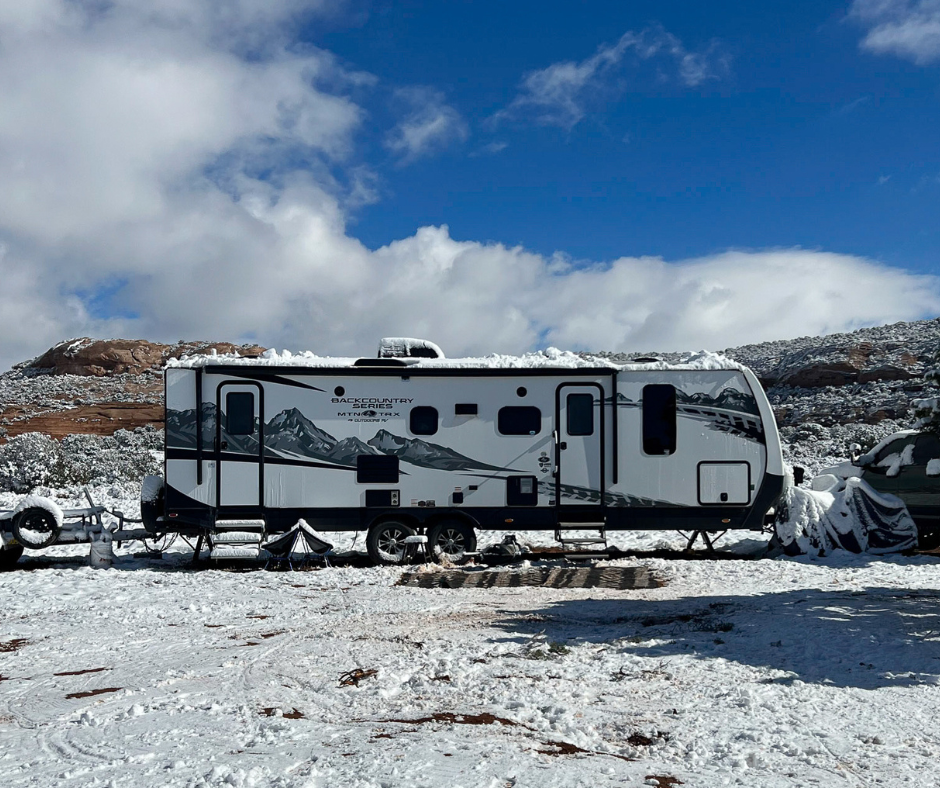
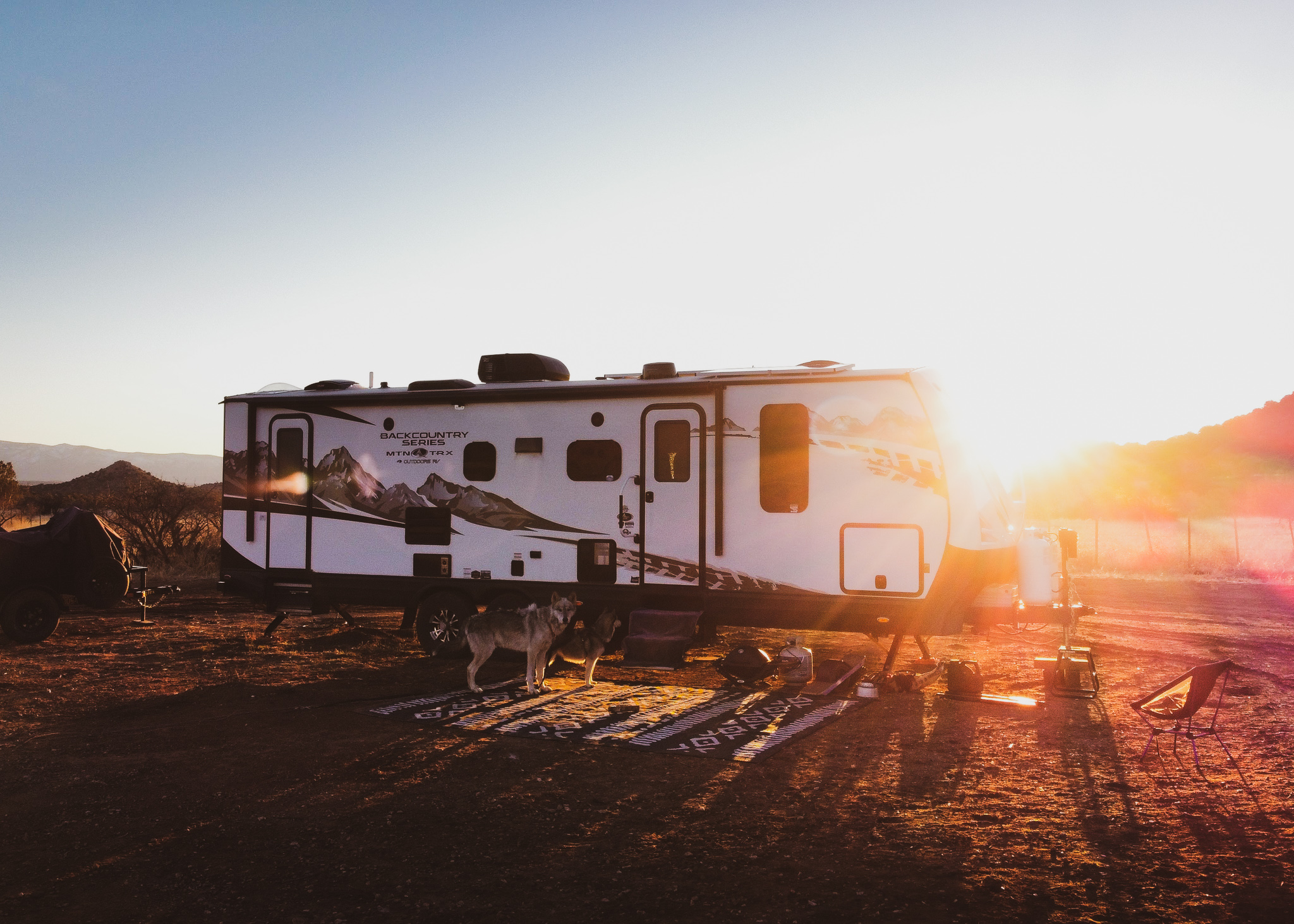
I bought two Battle Born batteries on the recommendation of our Service director! veritably precious but if they live up to your prospects they will be worth it in the long run. They’re lighter, charge important faster, and are less precious due to their long life expectation. And no water is demanded!